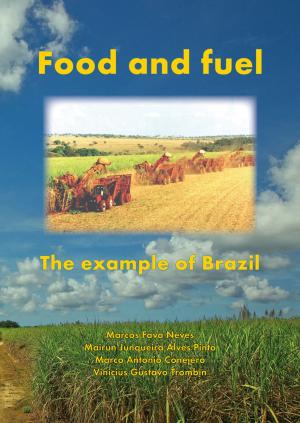Expedition Agroparks
Research by Design into Sustainable Development and Agriculture in the Network Society
Nonfiction, Science & Nature, Science, Biological Sciences, Botany| Author: | Peter J.A.M. Smeets | ISBN: | 9789086867196 |
| Publisher: | Wageningen Academic Publishers | Publication: | May 25, 2011 |
| Imprint: | Wageningen Academic Publishers | Language: | English |
| Author: | Peter J.A.M. Smeets |
| ISBN: | 9789086867196 |
| Publisher: | Wageningen Academic Publishers |
| Publication: | May 25, 2011 |
| Imprint: | Wageningen Academic Publishers |
| Language: | English |
This book is the result of several years of expedition into the development of metropolitan FoodClusters. The author's fascination for the agricultural landscapes in and around metropolises led him to the conclusion that improving the efficiency of agriculture is the most effective way to safeguard the quality of such landscapes. The wasteful modes of production developed in the past 150 years have led to a serious decline in both the surface area and the quality of the highly valued landscapes. Closing the loops within the agricultural production system and increasing their productivity is therefore the best remedy to arrest this decline.
After analysing the development of agriculture against the background of the urbanisation process in today's network society, the focus shifts to research by design on agroparks. These are spatial clusters of agrofunctions and the related economic activities. Agroparks bring together high-productivity plant-based and animal-based production and processing along industrial lines combined with the input of high levels of knowledge and technology. The cycles of water, minerals and gases are skillfully closed and the use of fossil energy is minimised, particularly by the processing of various flows of waste products and by-products. An agropark may therefore be seen as the application of industrial ecology in the agrosector. The scientific aim of this book is to find answers to the questions of whether agroparks contribute to sustainable development in metropolises, how an agropark is developed and how it must be designed. Under examination are seven designs for agroparks, which were created from 2002 onwards in the Netherlands, China and India.
This book is the result of several years of expedition into the development of metropolitan FoodClusters. The author's fascination for the agricultural landscapes in and around metropolises led him to the conclusion that improving the efficiency of agriculture is the most effective way to safeguard the quality of such landscapes. The wasteful modes of production developed in the past 150 years have led to a serious decline in both the surface area and the quality of the highly valued landscapes. Closing the loops within the agricultural production system and increasing their productivity is therefore the best remedy to arrest this decline.
After analysing the development of agriculture against the background of the urbanisation process in today's network society, the focus shifts to research by design on agroparks. These are spatial clusters of agrofunctions and the related economic activities. Agroparks bring together high-productivity plant-based and animal-based production and processing along industrial lines combined with the input of high levels of knowledge and technology. The cycles of water, minerals and gases are skillfully closed and the use of fossil energy is minimised, particularly by the processing of various flows of waste products and by-products. An agropark may therefore be seen as the application of industrial ecology in the agrosector. The scientific aim of this book is to find answers to the questions of whether agroparks contribute to sustainable development in metropolises, how an agropark is developed and how it must be designed. Under examination are seven designs for agroparks, which were created from 2002 onwards in the Netherlands, China and India.















